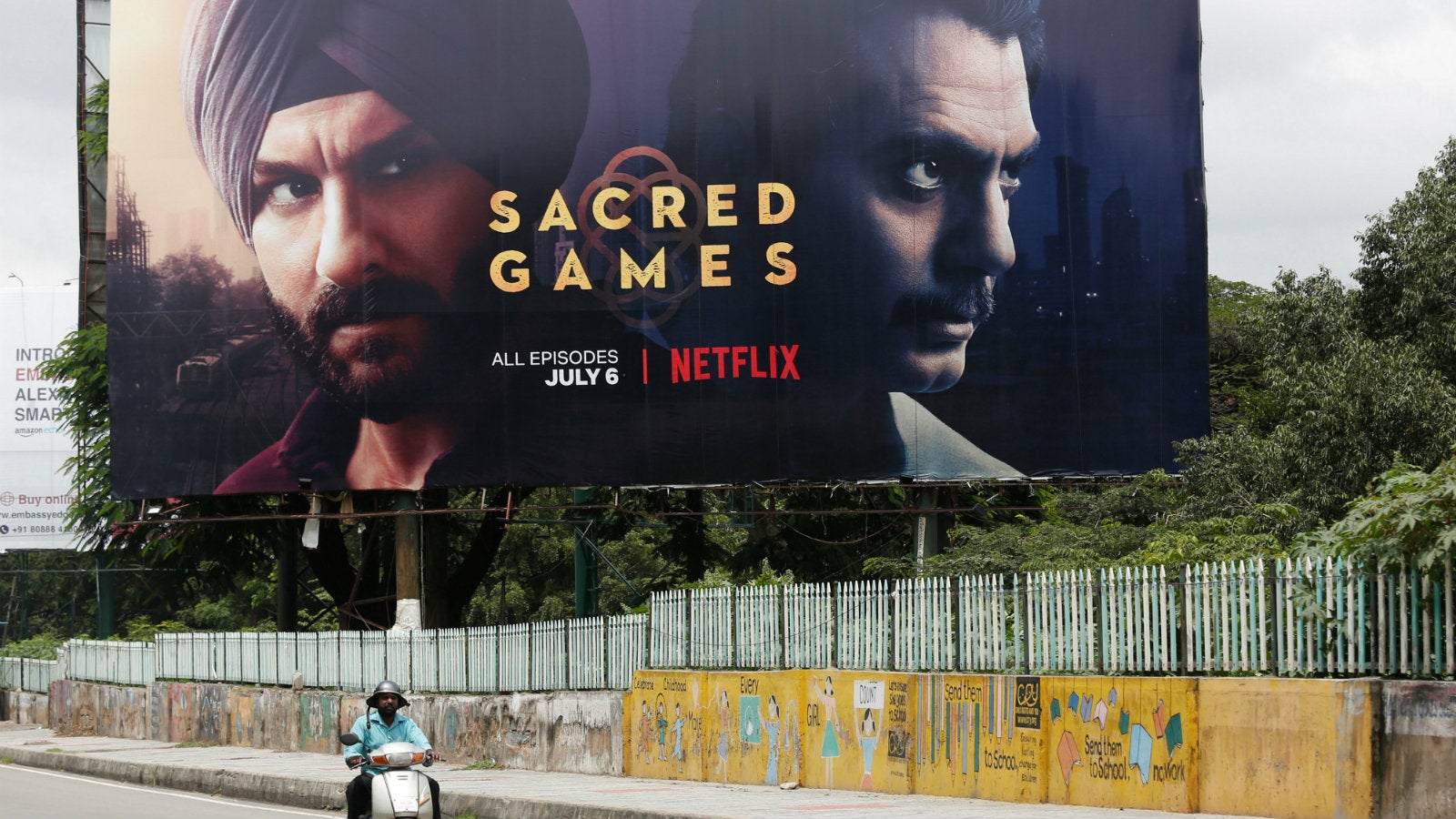Netflix and Hotstar will now be self-censoring some of their content in India
Several popular video-streaming platforms, including Netflix and Hotstar, have signed a code of best practices under which they will censor certain content in India.


Several popular video-streaming platforms, including Netflix and Hotstar, have signed a code of best practices under which they will censor certain content in India.
The goal, they said in a release on Jan. 17, is to preserve freedom of speech and expression, as presented in the constitution of India, while also following the principles laid out in the Information Technology Act and the Indian Penal Code, among others. The signatories of the self-regulatory code are Hotstar, Voot, Zee5, Arre, SonyLIV, ALT Balaji, Netflix, and Eros Now.
Amazon Prime Video, the streaming service of the American e-commerce giant, did not sign the code. In September 2018, when The Economic Times newspaper revealed that video-streaming providers were exploring voluntary self-censorship, Amazon was reportedly opposed to the idea. The company told Reuters that it believes the “current laws are adequate.”
Under prohibited content, the code of best practices lists the following items:
- Content which deliberately and maliciously disrespects the national emblem or national flag;
- Content which represents a child engaged in real or simulated sexual activities or any representation of the sexual parts of a child for primarily sexual purposes;
- Content that deliberately and maliciously intends to outrage religious sentiments of any class, section or community;
- Content that deliberately and maliciously promotes or encourages terrorism and other forms of violence against the State (of India) or its institutions; and
- Content that has been banned for exhibition or distribution by online video service under applicable laws or by any court with competent jurisdiction.”
It also states that the signatories will constitute a dedicated team to receive and address consumer complaints regarding the content they provide.
The code comes as video-streaming is booming in India, with homegrown Hotstar leading the pack. The Indian over-the-top (OTT) content market is expected to hit $5 billion by 2023, up from $0.5 billion in 2018, according to a report by the Boston Consulting Group. To appeal to the country’s growing smartphone-equipped audience, local and foreign players are investing big in original content, live sports, and regional-language shows.
Until now, online content largely escaped India’s extensive censorship machinery which ensures that many TV shows and movies are shown with blurred visuals and muted words. India’s Central Board of Film Certification (CBFC) in particular is widely known for its sweeping cuts that have targeted everything from swear words to dead fish on movie screens.
But in July last year, Netflix got into trouble over its original series Sacred Games, when an Indian National Congress member in West Bengal filed a complaint with police, accusing the show of insulting former prime minister Rajiv Gandhi. And in a public interest litigation filed to the Bombay high court, a lawyer argued that web series were displaying “pornographic content” and “vulgar gestures” that were “overriding the Indian culture and morality.” In its response, the high court pushed for the creation of a pre-screening body to check online content before it is released.
In a country where causing offence can spark violent protests, video-streaming players are now out to be safe than sorry.